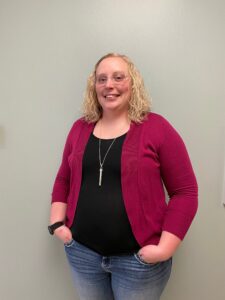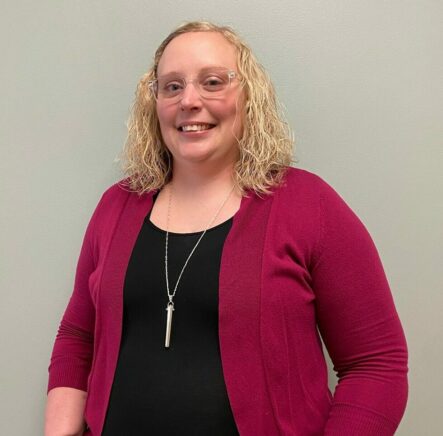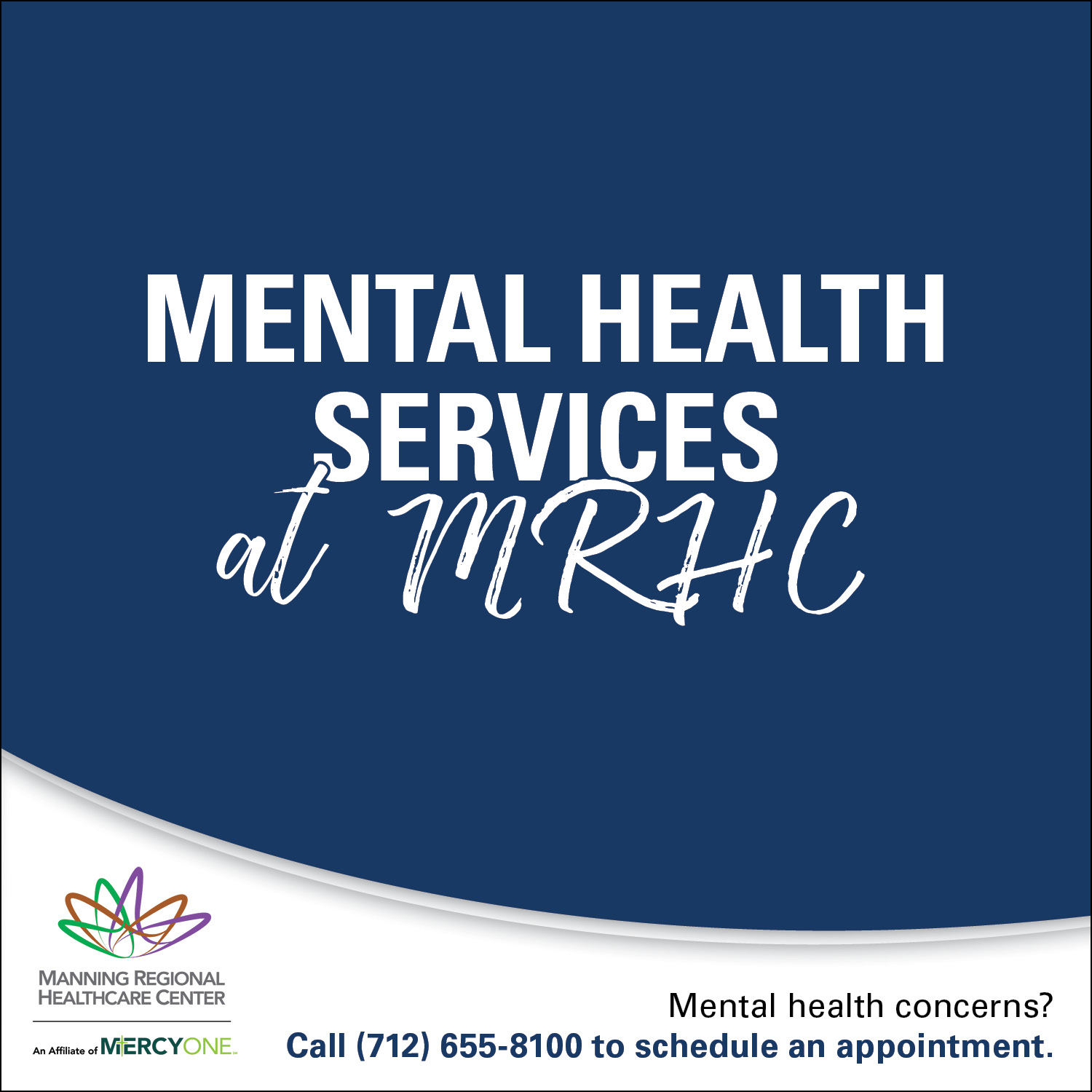 To address one of the primary health concerns affecting our rural communities, MRHC is expanding mental health services. Hollie Schechinger, a counselor in the Recovery Center at MRHC, will now be a designated mental health provider offering services in Manning three days a week for those 12 and older starting July 1st, 2023.
To address one of the primary health concerns affecting our rural communities, MRHC is expanding mental health services. Hollie Schechinger, a counselor in the Recovery Center at MRHC, will now be a designated mental health provider offering services in Manning three days a week for those 12 and older starting July 1st, 2023.
“My new position will help expand the availability of mental health services for everyone,” said Schechinger, LMSW. “I will be able to help people in Manning and surrounding communities get the help they need. Mental health services in this area are difficult to get as there are long waiting lists so people struggle to get appointments. My hope is to provide support for people who are just waiting for help.”
In addition to providing mental health services for the general community, Schechinger will also continue working with Recovery Center inpatient clients two days a week.
“I will be providing mental health therapy by using a wide variety of interventions and therapy models,” Schechinger said. “I am very excited about this opportunity and building the availability of mental health services in Manning. I hope we can spread awareness of mental health and the importance of not hiding it. I want to bring more access to mental health services so that those who are staying quiet about their mental health problems can speak out about them.”
Mental health care has always been important to Schechinger, and she is hopeful that her new role will help those in need and change the stigma surrounding mental health.
“I have always wanted to work in healthcare in some way. During high school when we took those career quizzes, I always got therapist. I just have a passion for helping people,” Schechinger shared. “I found that social work would be a great way to help others in the healthcare setting, so after getting my social work feet wet working with troubled youth at Quakerdale in Manning, I really realized how important mental health is. Many people still see mental health as being taboo, but I want people to understand that mental health impacts everyone in multiple ways. That is when I realized I wanted to focus on helping others in mental health.”
A 2009 Coon Rapids-Bayard graduate, Schechinger received a social work degree from Briar Cliff University in 2013. After working at Quakerdale, she worked in the Recovery Center for almost five years before going into Home Health with Carroll Area Nursing Services. She then returned to school to get her master’s in social work with a focus in mental health and trauma from the University of Denver.
“After finishing my degree, I realized I really missed providing therapy, so when a position opened at the Recovery Center, I decided to take it,” said Schechinger. “I spoke with the Director, Taya Vonnahme, about wanting to improve access to mental health services in this community, and she ran with the idea. The amazing administration team at MRHC came together and we came up with the plan of adding a full-time mental health therapist. Having an administration that will help us achieve our career goals is amazing. They really care and want you to succeed. I wanted to expand mental health services, and now less than a year later I am already working on making that goal reality.”
“Hollie is very passionate about helping our community in more ways than we already do,” said Vonnahme, MSN, RN, ARNP, CADC. “She has been working with the Recovery Center in Manning for years, and when she came back, she made it clear that as much as she loves substance abuse that she wanted to do more. I knew we had a great opportunity to provide additional services to our patients and community, so we are very excited to expand mental health services here in Manning.”
In addition to feeling supported in her career goals, Schechinger shares that working at MRHC is fulfilling in other ways as well.
“Working at MRHC is almost like having another family,” Schechinger shared. “I believe it speaks volumes that I worked here for 4.5 years and eventually decided to come back. We are very team-oriented, close with one another, and help each other out. Everyone is very encouraging and helpful in many ways even if they don’t work in the same department. We are all here to work together to help ensure patient safety and needs are met.”
To schedule a mental health appointment, call (712) 655-8100. Referrals are not needed. If you need additional mental health information, education, or would like to discuss support, please contact your primary care physician at (712) 655-2072. For those 65 and older, call Senior Life Solutions at (712) 655-8262. Or call the Manning Recovery Center at (712) 655-2300 and talk to a professional.

